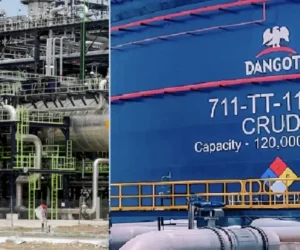1
LAGOS – Nigeria’s Special Advisor to President Bola Tinubu on Energy Olu Verheijen has joined the forum – taking place November 21 in Johannesburg – where she is expected to share insight into how the country’s recent slate of reforms is not only attracting foreign investment into the energy value chain but are positioning Nigeria as a benchmark for African nations as they pursue a hydrocarbon-driven energy transition.
She said, as one of the continent’s biggest oil and gas producers, Nigeria has been realigning policy with the aim of accelerating exploration, reversing production decline and unlocking greater value from both onshore and offshore hydrocarbon basins.
Recent reforms include the introduction of the “Upstream Petroleum Operations” (Cost Efficiency Incentives) Order this year, offering performance-based tax credits to oil and gas companies that achieve cost-reduction targets. She explained that the policy aims to lower operational costs, enhance the sector’s attractiveness while attracting investment into upstream projects. It also follows the implementation of the Petroleum Industry Act (PIA) in 2021, which overhauled sector governance, unbundled the Nigerian National Petroleum Company into a commercially-oriented entity and established a modernized regulatory framework to attract capital and foster sustainable growth.
According to her, the impact of these reforms has already been evident. Since the enactment of the PIA, Nigeria has catalyzed over $17 billion in foreign direct investment into its oil and gas industry, reflecting renewed global confidence in the market.
The country has also witnessed a surge in spending from active operators, including a $1.5 billion investment by ExxonMobil to revitalize its Usan deepwater oilfield; $5 billion FID reached for Shell’s Bonga North Deepwater Development; and a $550 million investment by TotalEnergies to develop a gas processing facility.
These investments, she said, follow a series of merger and acquisitions in 2024, with the country attracting $6.7 billion in investments throughout the year, driven by acquisitions by Seplat, Chappal Energies and Oando. These developments are aligned with Nigeria’s broader goal to increase production upwards of two million barrels per day.
Nigeria’s energy strategy transcends the oil industry, showcasing a diverse and multi-faceted development approach that considers all forms of energy. Part of its National Energy Transition Plan – which aims to advance low-carbon and sustainable energy projects – the country has set a goal to increase gas production to 12 billion cubic feet per day by 2030 and is seeking $60 billion over the next five to seven years to strengthen the gas value chain.








